 I have met many people in my life who struggle with the questions, “Why am I here? What am I doing with my life? What should I be doing with my life?” Fortunately, there is an answer.
I have met many people in my life who struggle with the questions, “Why am I here? What am I doing with my life? What should I be doing with my life?” Fortunately, there is an answer.
Life is full of ups and downs. At times we feel inclined to sing, rejoice and be happy. At others times, we feel as though we are treading through paths of misery and woe. In spite of life’s difficulties and pains, we are not meant to be continually mourning. Our purpose here in life is actually to have joy. The prophet Lehi of the Book of Mormon stated, “Adam fell that men might be and men are that they might have joy.” (2 Nephi 2:25) We exist in order to have joy!
While in this life, we ought to be happy and we ought to be preparing to join God in His Heaven after this life (Alma 34:32). The two go hand in hand. When we choose to prepare to meet God, that is, we choose to shun the evil and pursue the good, we will be more happy. It is in God’s nature to be happy and everything that is good (including happiness) comes from God. Obedience to the commandments and happiness are related. Conversely, when we make poor decisions that are contrary to the commandments of God, we cannot expect to be happy forever because wickedness never was happiness. (Alma 41:10)
Every decision we have to make has consequences. We are allowed in this life to make our own choices but we cannot choose the consequences that our decisions incur. Those consequences can be good and bring us knowledge, success or peace or those consequences can be just the opposite and damage the body, mind and soul. The commandments that God has given us are guidelines of a loving parent so that we might more fully enjoy life without being encumbered with additional pains. When we keep the commandments in our hearts and seek to obey them, God has promised a fuller and more abundant life. They are not intended to restrict, but to free. Milton R. Hunter, a member of the quorum of the seventy wrote in the book, ‘The Gospel through the Ages,’ the following about living life, “Religion is the highest expression of man’s will to live and to have that life more abundantly. Religion is the outreaching of the human heart for the most worthwhile things that life offers. In fact, it is the highest aspect of our struggle for life, beauty and happiness.” Those commandments contained in the Bible become less of a burden and more of a joy when we realize what things are truly worthwhile in the larger scheme of things.
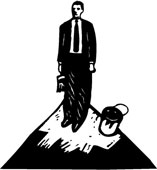 When considering this principle of consequences from actions, one must not assume all pain and suffering comes from bad choices. Life is a growing experience. God did not place us all in a static environment. That would show nothing from us. All people grow more when they are stretched to their limits. “And if men come unto me I will show unto them their weakness. I give unto men weakness that they may be humble; and my grace is sufficient for all men that humble themselves before me; for if they humble themselves before me, and have faith in me, then will I make weak things become strong unto them.” (Ether 12:27) Our real responsibility when dealing with hard times is to remember that we still control our attitude. The way we react to situations speaks volumes of our true self. When we have hope, we allow God to help us grow in trials. When we despair, we are left to languish and deteriorate.
When considering this principle of consequences from actions, one must not assume all pain and suffering comes from bad choices. Life is a growing experience. God did not place us all in a static environment. That would show nothing from us. All people grow more when they are stretched to their limits. “And if men come unto me I will show unto them their weakness. I give unto men weakness that they may be humble; and my grace is sufficient for all men that humble themselves before me; for if they humble themselves before me, and have faith in me, then will I make weak things become strong unto them.” (Ether 12:27) Our real responsibility when dealing with hard times is to remember that we still control our attitude. The way we react to situations speaks volumes of our true self. When we have hope, we allow God to help us grow in trials. When we despair, we are left to languish and deteriorate.
God did not intend for us to only react, however, and He has given us certain commandments that we must be charitable towards our fellow man. “Thou shalt love the Lord thy God with all thy heart, and with all thy soul, and with all thy mind. This is the first and great commandment. And the second is like unto it, Thou shalt love thy neighbour as thyself” (Matthew 22:37-39). When we love God, we love our neighbor. We serve him and when we serve our neighbor, we are serving our God. (See James 1:27 and Matthew 25:34-40)
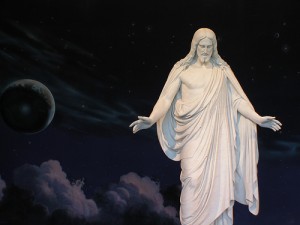 A truly full and abundant life would not be complete without our Savior, Jesus Christ. Through His gospel, He can be a daily part of our life. Through Him, our efforts to serve God will not be in vain. We will grow, our fellow man will grow, and we will all be perfected in Him. This process is continuous and does not end, even when this life will end. Our true faith and our willingness to come to Christ will be an integral part of our life and it will show.
A truly full and abundant life would not be complete without our Savior, Jesus Christ. Through His gospel, He can be a daily part of our life. Through Him, our efforts to serve God will not be in vain. We will grow, our fellow man will grow, and we will all be perfected in Him. This process is continuous and does not end, even when this life will end. Our true faith and our willingness to come to Christ will be an integral part of our life and it will show.
See “The Plan of Salvation“

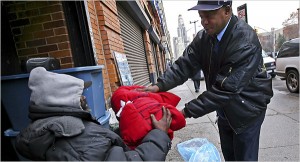

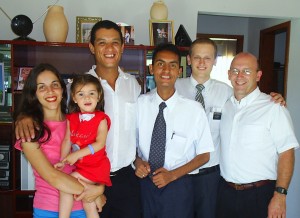
 That Sunday church service is designated for witnessing or bearing testimony of the truthfulness of the gospel of Jesus Christ by the members of the congregation. Besides abstaining from food and drink and attending testimony meeting, a true fast also consists of giving a fast offering to care for those in need. The offering, the sum of money that would have been spent on the two skipped meals, is given to the Bishop for any members who are struggling.
That Sunday church service is designated for witnessing or bearing testimony of the truthfulness of the gospel of Jesus Christ by the members of the congregation. Besides abstaining from food and drink and attending testimony meeting, a true fast also consists of giving a fast offering to care for those in need. The offering, the sum of money that would have been spent on the two skipped meals, is given to the Bishop for any members who are struggling. Isaiah notes the spiritual benefits and lists them in the 58th chapter of his book. When we obey the law of the fast he says, “Then shall thy light break forth as the morning, and thine health shall spring forth speedily: and thy righteousness shall go before thee; the glory of the Lord shall be thy rereward [or rearguard]. Then shalt thou call, and the Lord shall answer; though shalt cry, and he shall say, Here I am.” We are promised better health, protection, that we will be closer to the Spirit of the Lord and that the Lord will hear and answer our prayers.
Isaiah notes the spiritual benefits and lists them in the 58th chapter of his book. When we obey the law of the fast he says, “Then shall thy light break forth as the morning, and thine health shall spring forth speedily: and thy righteousness shall go before thee; the glory of the Lord shall be thy rereward [or rearguard]. Then shalt thou call, and the Lord shall answer; though shalt cry, and he shall say, Here I am.” We are promised better health, protection, that we will be closer to the Spirit of the Lord and that the Lord will hear and answer our prayers.
 When I lived in Uganda last summer I fasted for a number of reasons. I went there to do humanitarian work and “change the world!” I wanted Heavenly Father to show me what I could do that would make the most meaningful impact on the people I worked with. Thinking I could change things or fix problems was incredibly prideful, but I really wanted to make a difference. The biggest difference, of course, was with myself. The scriptures tell us to feed the hungry, heal the sick, clothe the naked, etc., but I have never seen such practical application in my life. Everyone I knew in the U.S.A. had at least five pairs of shoes, plenty of food in the pantry and access to medical attention, but in Lugazi? No. It was while I was walking up and down dirt roads, having little kids who wore the same shirt everyday run up in their bare feet and grab my hands that I realized why we are asked to fast. Not everyone can have the experience I did in East Africa, but fasting gives people everywhere that little taste of discomfort that is so common around the world. It helps us to realize that there is so much work for us to do while Christ is away.
When I lived in Uganda last summer I fasted for a number of reasons. I went there to do humanitarian work and “change the world!” I wanted Heavenly Father to show me what I could do that would make the most meaningful impact on the people I worked with. Thinking I could change things or fix problems was incredibly prideful, but I really wanted to make a difference. The biggest difference, of course, was with myself. The scriptures tell us to feed the hungry, heal the sick, clothe the naked, etc., but I have never seen such practical application in my life. Everyone I knew in the U.S.A. had at least five pairs of shoes, plenty of food in the pantry and access to medical attention, but in Lugazi? No. It was while I was walking up and down dirt roads, having little kids who wore the same shirt everyday run up in their bare feet and grab my hands that I realized why we are asked to fast. Not everyone can have the experience I did in East Africa, but fasting gives people everywhere that little taste of discomfort that is so common around the world. It helps us to realize that there is so much work for us to do while Christ is away.
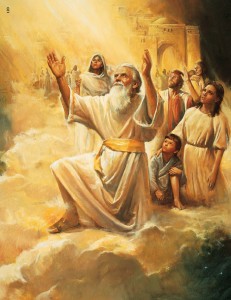 A scriptural favorite of mine is the
A scriptural favorite of mine is the